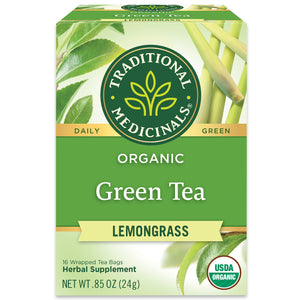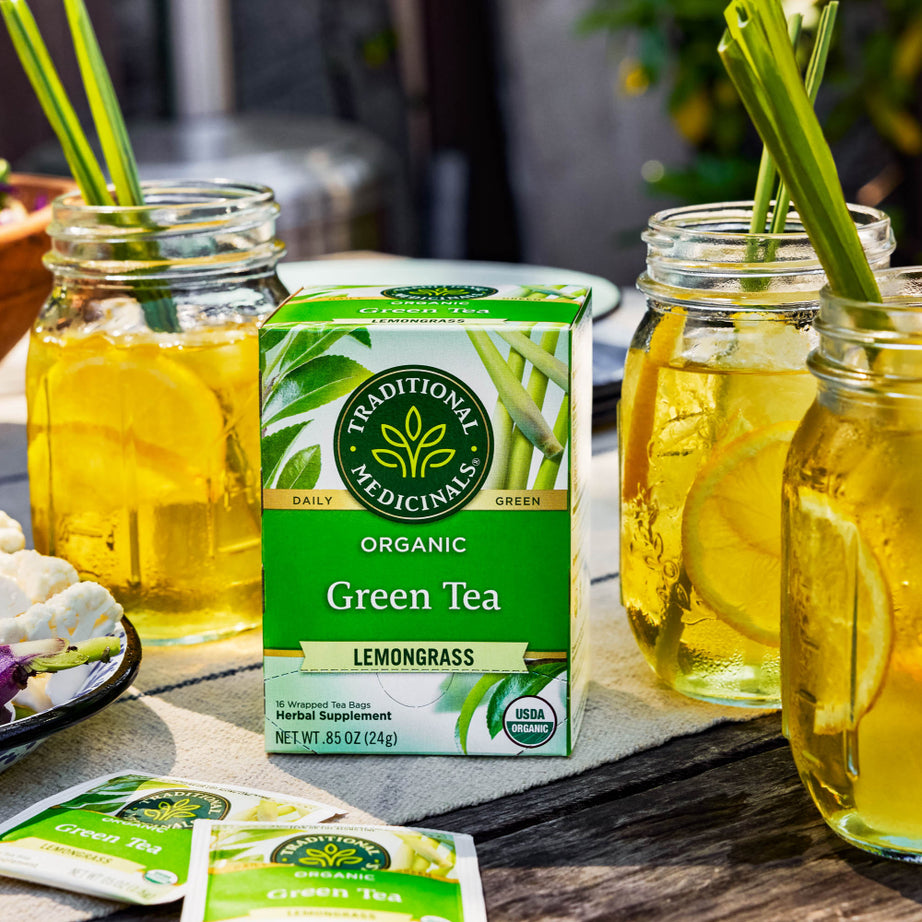
More Lemongrass info
“Lemongrass" originates from its lemon-like aroma and resemblance to grass.
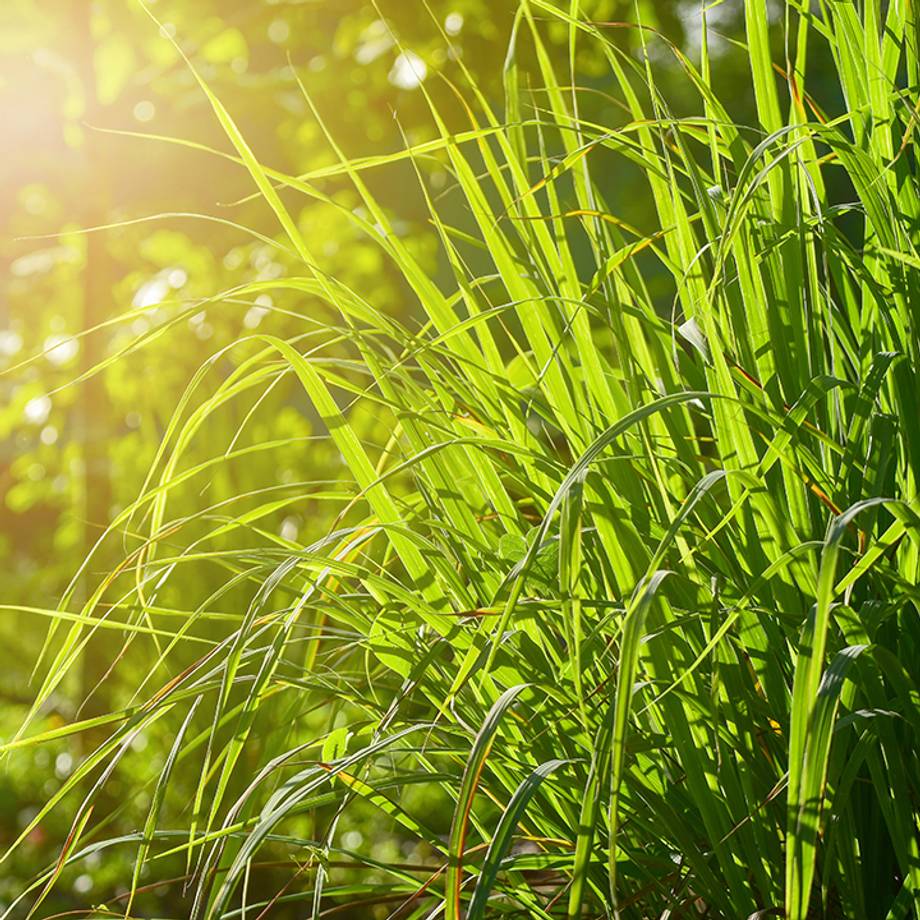
This citrusy green grass packs a zing in many Southeast Asian dishes, like green curry and tom kha gai. However, it’s more than a culinary treat; it’s been used traditionally in folk medicine in India, Thailand, Brazil, and beyond for centuries.
Lemongrass is aromatic, slightly bitter, and cooling. It increases perspiration, hence its common name, “fever grass,” and is often used to ease stress, digestive tension, and cramping.*
The essential oil of lemongrass is incredibly popular and contains citral and citronellal, both known for their relaxing qualities. Many use lemongrass, or its sister plant citronella, in candles or diffused as an essential oil to repel insects and pesky mosquitos. While repelling to insects, it’s allure to humans makes it a common ingredient in soaps, oils, hair products, and perfumery for its light and uplifting aroma.
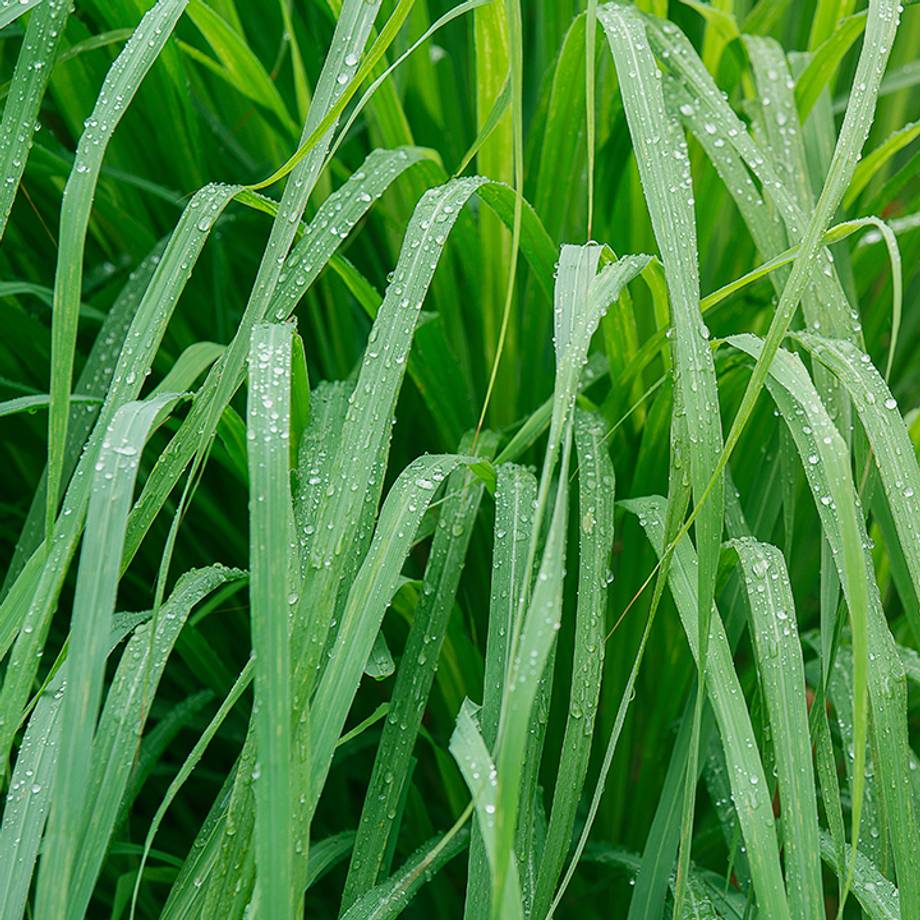
Native to Maritime Southeast Asia, this botanical thrives in tropical climates and is synonymous with traditional tropical Asian cuisines. Curries, soups, stews, slow-cooked meats, fish, rice, and teas are commonly infused with the hearts of the young shoots or stalks of lemongrass. It’s often paired with coconut milk, ginger, and chili—and its bright and citrusy taste makes any dish more exciting.
Lemongrass gained international popularity during the early spice trade era when it became beloved and grown outside its home in the Southeast Asian tropics. It’s now used as a tea to boost immunity in the Caribbean and to ease anxiety in Brazilian folk medicine. In Hoodoo, it’s the primary ingredient in van van oil and is used to clear energy and bring the wearer good luck.
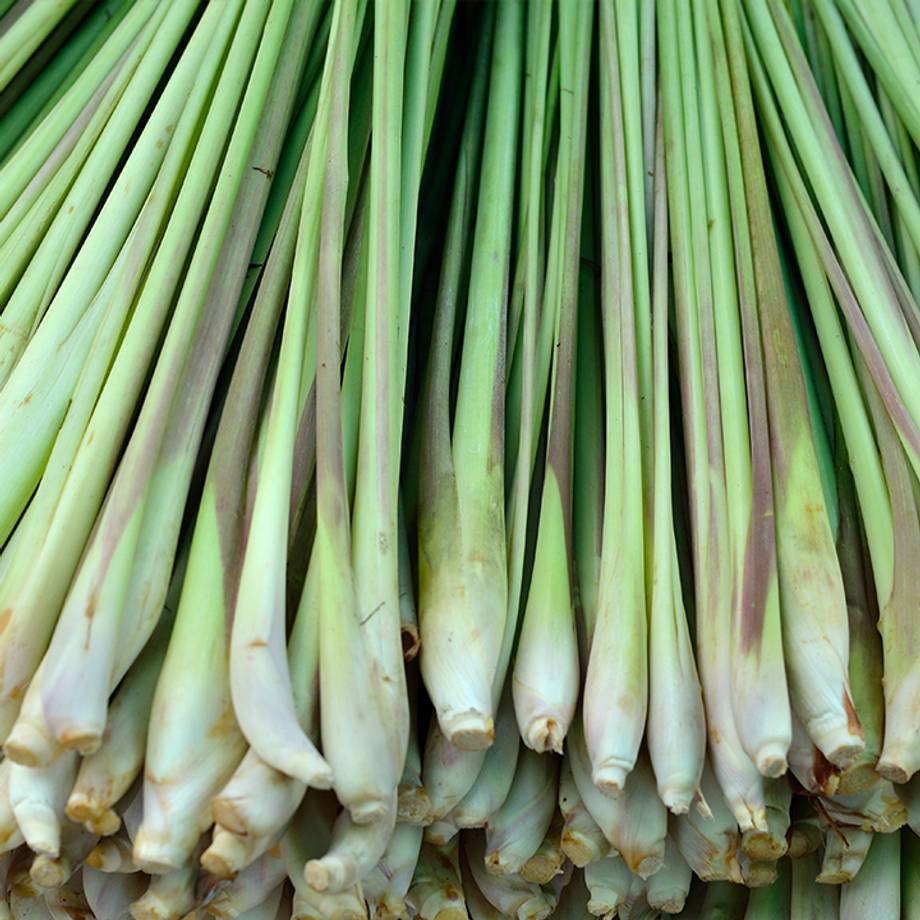
Lemongrass is native to Southeast Asia, most likely India, Sri Lanka, Malaysia, and Indonesia. It thrives in tropical grasslands and USDA Zones 9 – 10 but can easily be grown in pots and brought indoors in cooler climates. This perennial green is incredibly hearty, making it a popular plant for creating a natural border, ground cover, and erosion control. It prefers rainy climates, moisture-retentive and well-drained soil, and full sun. If you’re growing it outside its ideal range, give it fertile soil and little to no shade for the best results.
Products that contain Lemongrass
Additional Information
Legal Disclaimer
The information and other content in this article are designed to provide a general overview of the botany, cultural history, and traditional uses of this herb. It is not intended and should not be construed as health advice. Every person is unique and you should consult with your health care provider before using any herbal product or supplement.
Become an Herb Nerd & Get 10% Off!
Herbal tidbits, DIY plant projects, exclusive discounts, and recipes to follow the seasons delivered straight to your inbox.

